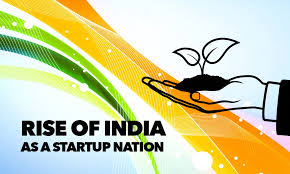🧭 Introduction
After a funding winter and macroeconomic uncertainty in 2023–24, Indian startups in 2025 are choosing a different path—not just raising money, but pivoting their business models for profitability, sustainability, and long-term impact. From edtech to e-commerce, these pivots are reshaping India’s innovation ecosystem.
But is it out of survival instinct or a strategic shift? Let’s decode the trends.
💼 What Does “Pivot” Mean?
A pivot means a startup changes its product, market, or business model—sometimes radically—to better respond to customer demand, market realities, or internal weaknesses.
🔄 Major Pivot Trends Seen in 2025
1. Edtech to Employability
- Startups like Byju’s, upGrad, and Unacademy are shifting from K–12 to skilling, certifications, and job placement.
- Reason: Online school content demand has dropped post-COVID; job-centric education has surged.
2. D2C Brands to Omnichannel
- Startups in beauty, wellness, and FMCG (e.g., Mamaearth, Wow Skin Science) are now investing in offline stores and third-party retail partnerships.
- Reason: Offline visibility builds trust and drives repeat purchases.
3. Delivery to Logistics-as-a-Service
- Startups like Dunzo and Shadowfax have pivoted from B2C delivery to B2B logistics platforms, powering backend delivery for other businesses.
4. Crypto to Compliance Tech
- Crypto startups hit by regulatory pressure have pivoted to blockchain auditing, Web3 identity tools, and GovTech collaborations.
💰 Why Are Startups Pivoting in 2025?
| Reason | Description |
|---|---|
| 📉 Funding Pressure | VC money is cautious, focused on unit economics |
| 📊 Focus on Profitability | Post-IPO burnouts have created pressure for sustainable growth |
| 🧠 Changing Consumer Behavior | COVID-era models like pure edtech and grocery delivery lost traction |
| 🧾 Regulatory Changes | Data privacy, fintech rules, crypto taxes forced compliance pivots |
🧪 Real Startup Pivots: Before vs After
| Startup | Before Pivot | After Pivot |
|---|---|---|
| Vedantu | Live classes (K–12) | Job-linked microdegrees |
| Zolve | Neo-bank for travellers | Credit-building for NRIs & expats |
| Blinkit | Instant groceries | Hyperlocal marketplace with B2B supply focus |
| CoinSwitch | Crypto exchange | Investment + compliance platform for Web3 |
🌱 Strategic or Survival?
✅ Strategic if:
- The pivot opens up a more profitable or scalable model
- The startup is capitalizing on market gaps
- Core team, values, and tech remain intact
⚠️ Survival if:
- The pivot is reactionary or desperate
- There’s no clear product-market fit
- Founders/teams churn rapidly
🧠 Expert View
“In 2025, pivoting isn’t seen as failure—it’s a sign of maturity. It shows Indian startups are listening to the market and adapting.”
— Neha Bansal, Angel Investor & Former Sequoia Partner
🔚 Conclusion
Startup pivots in 2025 are not just trend-driven; they’re mission-critical decisions in a maturing ecosystem. As capital becomes selective and consumers demand more, only agile, data-backed, and problem-focused startups will thrive.
India’s startup story is entering a new chapter—leaner, sharper, and smarter.
































































